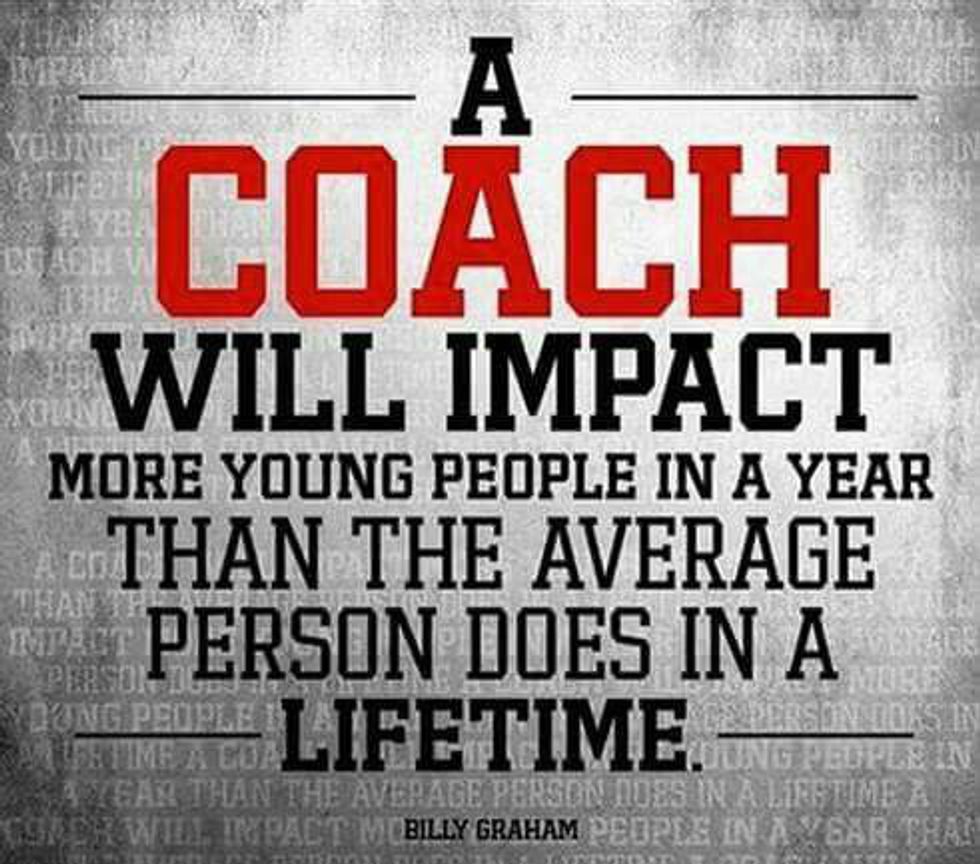People are meant to do all sorts of things with their life. Finding your calling can be difficult at times, but deep down, you know it’s there begging to come out. Even though I may not have a career all lined up after graduation, I think I’ve known all along that I should be a youth soccer coach. I’ve had a passion for the sport ever since I can remember. As I have been pursuing my coaching minor from Bridgewater College, it has become quite clear to me that I am meant to change athlete’s lives through coaching sports.
I remember the very first day I stepped on a soccer field. I also remember the moment I met my first coach. No matter how muddled that memory may be, it’s something special. This coach was just an ordinary dad who took on the role of coaching his daughter’s youth soccer team. But to this particular group of 5-year-old players, he was extraordinary. He wasn’t by any means an ex-soccer protégé or a diehard, lunatic soccer fan. He was a man who wanted to impact kids’ lives for the better. Most of us had never touched a soccer ball before (including me), and he intended to make this first season one to remember. He taught us how to dribble, shoot, score, and more importantly how to have fun.
Fun. Remember when that was the goal of youth sports? It feels like a distant memory. Nowadays, there is way too much pressure placed on winning and being the best. Winning isn’t everything, as much as many people make it seem to be. The winning at all cost mentality that has consumed many youth sport coaches makes me sick to my stomach. By placing so much emphasis on the outcome, kids are starting to think that in order for sports to be fun, you have to win. Sports should be fun regardless of winning or losing. The game itself is supposed to give you a rush of joy and satisfaction.
This is not to say that kids should not be taught about winning and losing. There are always going to be winners and losers, but it shouldn’t be the only thing focused on by a coach. There’s definitely a difference between “liking to win” and “caring to win.” All coaches like to win. I mean, who doesn’t? But caring to win no matter what it takes is what becomes the issue. Too many coaches place sole emphasis on winning and forget to show their players the big picture.
By the big picture, I’m talking about the real reasons kids should play youth sports. They should have fun, be social in making new friends, learn the essence of teamwork, build character, all while staying active. I guess what I’m trying to say is that participation in youth sports goes way further than the score at the end of the game. We are teaching and allowing kids to learn valuable life lessons.
I have been a youth soccer referee since I was 12 years old. I think having experience on both sides of the action has given me incredible insight in regards to how difficult the job of a referee proves to be. So, for over about nine years now, I have gained deep respect for officials. Unlike many youth sport coaches today, I realize that getting worked up about a bad call or yelling at the referee in front of your team does nothing productive. We are all human. We make mistakes. It isn’t the World Cup, World Series, or National Championship. The referee is doing his/her best, so we must give them a break. There’s no sense in blowing up over a call that means nothing in the long run. Let’s stop showing our players that it is acceptable to argue with officials or to disrespect them. They have a love for the game as well, and are in no means out to get your team.
The same can be said for parents. I have seen it all. From sport-crazed sideline screamers to parent agents, they are everywhere. Just like many coaches, they view every single game as a life or death situation. Let your kids be kids, and stop pressuring them to succeed so much. Let them have fun. Let the referee blow their whistle and stop embarrassing yourself by questioning every single call. And above all else, let the coaches do their jobs.
Sports. I have played them all. Soccer, basketball, volleyball, and lacrosse have consumed my life since the beginning. If my calculations are right, I have played for over 20 coaches easily throughout my athletic career. Of course, there were some good and bad. When you’ve played sports for that long, you’re bound to experience it all. I’ve had a lot of outstanding coaches. I've also had some that I would like to forget. But I choose to remember the good things each of them brought to the table. Every coach goes into the job with good intentions, and sometimes it doesn't go the way they intended. I will always remember the profound impact they have each had on my life on and off the field. That will never be forgotten. I am thankful for every single coach I have played for because it has taught me what to be and what not to be. It has provided me with the framework to create my own coaching philosophy.
As a coach, you are a role model. Just like a teacher or parent, you often see these kids just as much between practice and games. It’s your duty to teach them about how to be successful in life on and off the field and how to be a better person. Whether you realize it or not, what you say to a player could impact them for the rest of their lives for better or worse. So choose your words wisely! They will see how you handle a tough loss, your response to a difficult situation, and how you genuinely carry yourself on and off the field. I want to be a positive coach and provide my players with the guidelines for a bright and amazing future. I want each of them to remember my words and to carry them into adulthood. I want to be the reason that a player falls in love with the game just like I did. I want to push them to be better players and people. I want my players to be proud of my actions and to trust me in always having their best interest. I want to be there for each of them when they need it more than anything. And, most of all, I want them to remember me.























